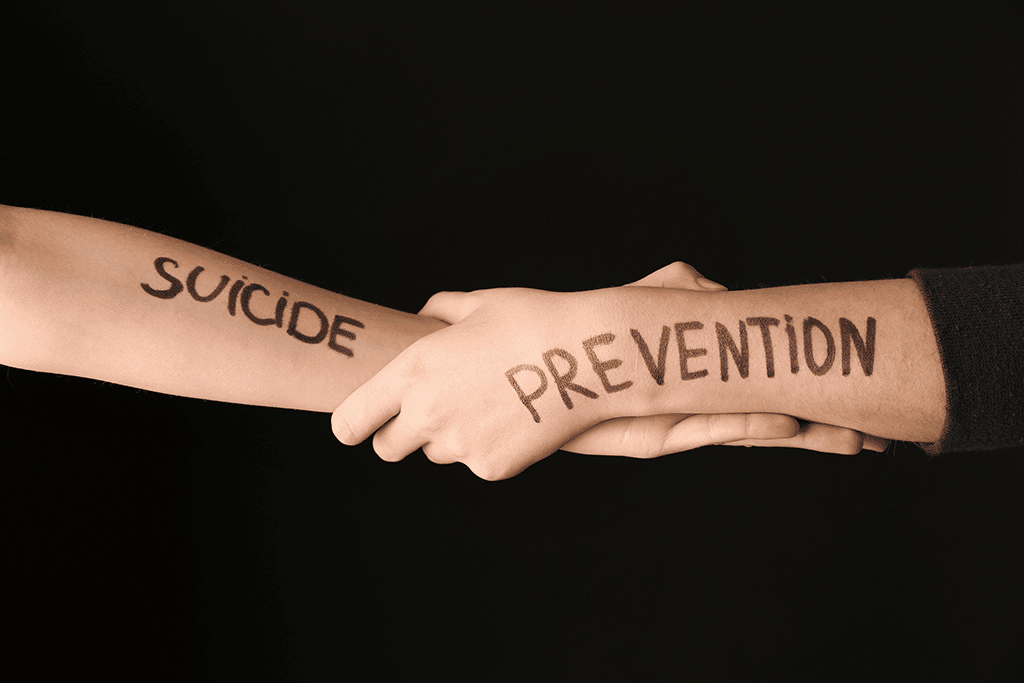The Suicide Awareness Voices of Education provides the following data about suicide rates in 2020: An average of 125 American people die by suicide every day. In 2020 alone, 45,979 people took their own lives, with the number of attempts being much larger. Approximately 1,149,475 suicide attempts are made annually in the United States. These numbers are shocking, aren’t they?
Suicide Prevention Week runs from September 4th through September 10th, 2022. At Cornerstone, we would like to remind anyone experiencing mental health struggles to ask for help. You aren’t alone. Many people are experiencing the same feelings, and just as many are willing to help get you through it.
As part of Suicide Prevention Week, let’s cover some of the ways you can get involved in spreading suicide prevention awareness.
HOW YOU CAN HELP
Get involved in your community
Despite our changing society and push for acceptance, there is still a lingering stigma surrounding mental health. Mental health problems are often negatively perceived or not taken seriously. Mental health issues come in all shapes and sizes, and the way someone handles their struggle differs from person to person.
One of the ways to help break the stigma is to get involved in your community. Talk with your friends and peers about suicide prevention. Encourage them to learn more about awareness and know when to reach out to someone that might need help. It’s also important to remind people that they don’t always need to be the solution to improving someone else’s mental health; they can also act as a supporter for the journey. Mental health professionals and the crisis hotline are trained to provide professional counseling and therapy. If you feel someone in your community needs more help, encourage them to look into mental health services.
Community events, such as walks or fundraisers, are also great ways to get involved with your community in raising awareness for suicide prevention. Even if you aren’t able to attend the events yourself, re-sharing the information on social media or by word of mouth could spread the details to more people.
Learn the warning signs
Not everyone considering suicide displays warning signs. Even when they do, the signs could be hard to identify or brushed off as less severe than they really are. If you notice someone close to you experiencing any of the following behaviors, take action by talking with them and asking how you can help.
- A change in behavior that differs from their normal personality or actions
- Talks about killing themselves or feelings of depression or hopelessness
- Withdraw from friends or loved ones
- Increased use of drugs, alcohol, or other addictive behaviors
- Sleeping too much or not enough
- Extreme mood swings or increased agitation/irritability
- Taking irrational or dangerous risks
- Loss of interest in hobbies or life in general
- Giving away loved possessions
- A shift in behavior from being depressed and anxious to relieved and calm without any treatment or help
- Frequent comments about saying goodbye to loved ones
- Search history of topics related to ways of dying
- A feeling of immense and unrelenting pain
- Extreme aggression or anger
These warning signs can apply to you or a loved one. If you notice someone exhibiting any of these signs, take action or get help as soon as possible. There are options, and by identifying suicidal behaviors, you could help save someone’s life.
Encourage conversations
Conversations about suicide can be hard, especially when you suspect someone in your life may be suicidal. Whatever you do, don’t avoid the conversation because you think it may be confrontational. Start the conversation by being open and accepting of what the other person has to say. Be respectful and let them know they are in a safe space. Take time to be fully attentive without any distractions.
By creating a sense of openness and trust, you can foster a reputation of being an outlet for mental health discussions. Let others know you are willing to help, and make an effort to actively check in on people. Remember to start the conversation in private, and try not to confront someone about their wellbeing in front of people they may not be comfortable with.
Donate to an organization
Do you have a local charity or organization in your area that helps people with mental health treatment? Is there a suicide prevention program you could support? Whether you choose to donate your money or time, both are equally as valuable. Do your research to find local or national organizations that raise awareness about suicide prevention, help people find treatment, educate about suicide, or offer mental health help and services.
KNOW YOU HAVE OPTIONS
If you or a loved one is experiencing suicidal or depressive thoughts, it’s time to act. You have options, and many of them are available at the exact time you need them. Consider the following resources (in no particular order) if you begin experiencing suicidal ideation or mental health crises.
Suicide and Crisis Lifeline
The 988 Suicide and Crisis Lifeline provides 24/7 free and confidential support for people in suicidal crisis or emotional distress. It also provides prevention and crisis resources for people looking for information. By dialing or texting 988, you will be connected to a national network of local crisis centers ready to provide support at no cost to you. Day or night, the Suicide and Crisis Lifeline is there for you.
Family & Friends
Simply avoiding or suppressing your thoughts or feelings could lead to a much worse scenario down the road. Share your feelings with family or friends to let them know that you’re struggling. Don’t be afraid to open up to someone you care about. They care about you, too.
Talk about what you’ve been going through. Don’t be scared of rejection. Don’t feel ashamed. Don’t avoid talking about it because you don’t want to be a bother. You may be feeling clouded by pain or despair right now, and not see another way out. Give your friends and family a chance to help you. Decide the best person to talk to, and open up about how you feel.
If you don’t feel like you have anyone close to that you can tell, call the Suicide Lifeline or consult with your doctor or mental health professional. Talk to someone.
Your Doctor
Did you know that suicidal thoughts can be a side effect of certain medicines and prescription drugs? Over the years, the FDA has released advisory notices to doctors and the general public about suicidal side effects associated with certain drugs. If you’ve had a change in medicine or have started taking a new medicine and suddenly experience increasing suicidal thoughts or actions, talk to your doctor. A change in treatment could save your life.
Depression and anxiety can be managed with antidepressants or prescription medication. Talk with your doctor if you feel depressed or anxious. He or she will talk about your options and determine the best course of action. Make sure you disclose all of your symptoms and any vitamins, supplements, or current medication you are taking.
It’s important to remember that treatment and relief may take time. Your body is adjusting to the new change, and it might take a couple months for you to feel a difference. It’s okay to let your doctor know if a certain medication isn’t working for you, too. It may take a couple tries to find one that is truly effective for your symptoms.
Therapy & Mental Health Professionals
Therapy is not a one-size-fits-all solution. This is important to remember when choosing the type of therapy that is right for you. At Cornerstone, we will work with you to evaluate your symptoms and determine a strategy for your treatment plan. From talking about how you feel to establishing better communication skills and symptom management, our trained professionals will work with you one-on-one to enhance your quality of life. You are our priority.
The best part about our therapy and counseling sessions is that they are unique to your needs. Don’t think your current sessions are working? Let’s change them. Maybe the therapist you’ve been seeing isn’t the right fit for you. Our different therapy options and expertly trained professionals are available to help you find a plan that works. All we ask is that you keep an open mind to the resources and therapeutic strategies that have proven effective in the past.
If you or someone you love is experiencing depression, anxiety, suicidal thoughts, a feeling of hopelessness, or any mental health struggles, give us a call at (217) 222-8254. We will help you schedule an appointment to talk with someone as soon as possible.


